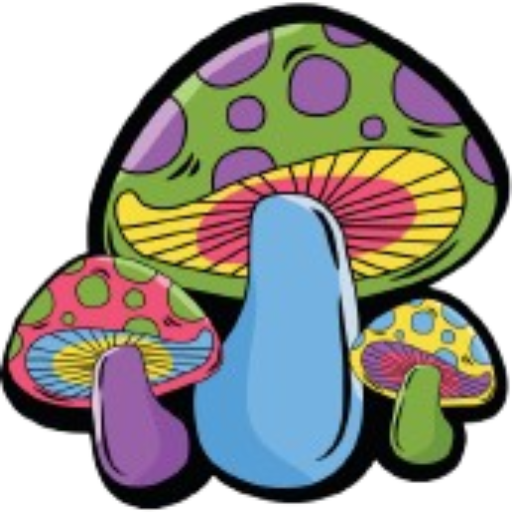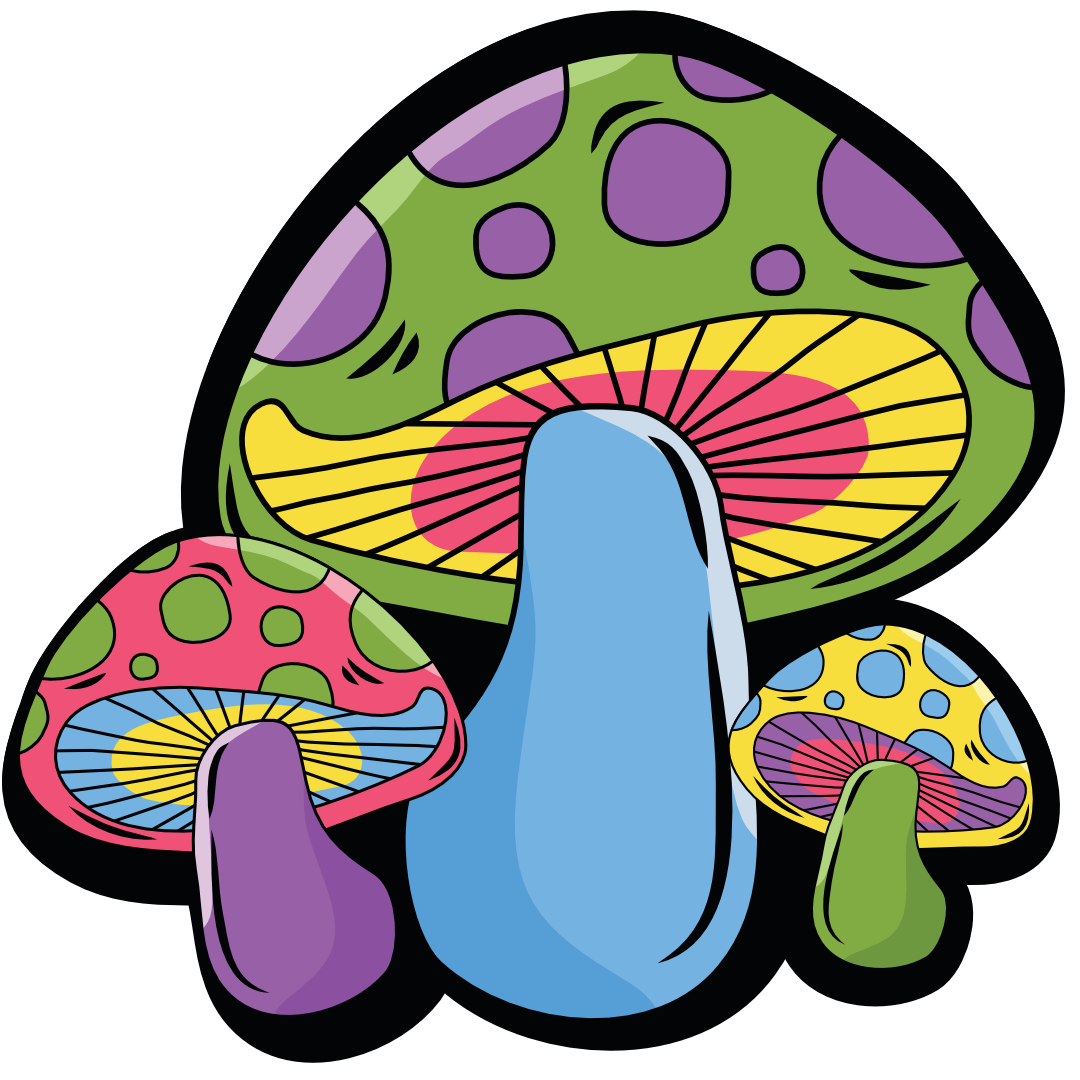The present report provides post hoc analyses of acute subjective effect data in 288 participants from ten previous studies in which participants were administered psilocybin doses in the therapeutic range of 20 to 30 mg/70 kg. The analyses sought to determine whether the subjective effects of psilocybin dosing are affected by body weight when psilocybin is administered on a weight-adjusted basis and when psilocybin is administered as a fixed dose. The results suggest that the convenience and lower cost of administering psilocybin as a fixed dose outweigh any potential advantage of weight-adjusted dosing, as no significant associations were found between subjective effects and demographic variables including body weight or sex across a wide range of body weights.
Introduction to Psilocybin Mushrooms
Psilocybin mushrooms, also known as psychedelic fungi or hallucinogenic mushrooms, are a fascinating and intriguing topic. These mushrooms contain the naturally occurring compound psilocybin, which is rapidly converted to psilocin in the body. The psychoactive effects of psilocybin are primarily mediated through its interaction with the serotonin 2A receptor, leading to altered sensory experiences, emotions, and perceptions of time and space.
Over the past decade, there has been growing interest in the potential therapeutic applications of psilocybin. Studies have explored the use of psilocybin-assisted therapy for conditions such as depression, anxiety, and substance use disorders. Researchers have reported promising results, with psilocybin therapy showing the potential to produce substantial and sustained decreases in symptoms, as well as enduring positive changes in psychological functioning.
Psilocybin mushrooms have a long history of use among indigenous communities in Mesoamerica, where they have been employed for religious, spiritual, and healing purposes. Today, these mushrooms are also used recreationally, with users reporting a range of subjective experiences, from euphoria and mystical-type experiences to challenging and even difficult episodes.
As research into the potential benefits and risks of psilocybin continues, it is important to approach the topic with an open and informed mindset. Understanding the nuances of psilocybin mushrooms, their effects, and their therapeutic applications can help inform responsible and ethical decision-making.
Understanding Dosage Ranges
The dosage of psilocybin mushrooms can vary significantly based on factors like the potency of the mushroom strain and the specific part of the mushroom consumed. At a microdose (0.1-0.2 g), individuals may experience a subtle mood elevation, increased focus, and heightened energy levels. In contrast, a higher, recreational dose (1.0-2.5 g) can induce more pronounced effects, including hallucinations, visual distortions, euphoria, enhanced mindfulness, emotional intensity, as well as potential side effects like nausea, confusion, and rapid mood changes.
Microdosing
Psilocybin microdosing has garnered increasing attention due to its potential therapeutic benefits. Research suggests that regularly taking small, sub-perceptual doses of psilocybin (typically less than 0.5 g of dried mushrooms) can positively impact mental health, cognitive function, and overall well-being. Studies have explored the use of psilocybin microdosing for conditions like treatment-resistant depression, obsessive-compulsive disorder, and addiction.
Recreational Dosage
While psilocybin mushrooms can induce profound and meaningful experiences at higher, recreational doses (1.0-2.5 g), it’s essential to approach their use with caution and appropriate guidance. Consuming psilocybin outside of controlled settings can pose significant risks, including adverse psychological effects and legal consequences. Proper dosage, set, and setting are crucial for navigating the subjective experiences and potential therapeutic benefits of psilocybin.
“Psilocybin has demonstrated positive results in smoking cessation and anorexia nervosa treatment studies, highlighting its potential therapeutic applications.”
Factors Affecting Dosage
The subjective effects of psilocybin, the active compound in magic mushrooms, can be influenced by a variety of factors. The physical setting, emotional state, and the dose itself can all play a role in determining the individual’s response to the experience. Additionally, factors like body weight can affect the bioavailability and pharmacodynamic response to psilocybin, leading to differences in the intensity and duration of the mushroom experience.
According to the European Monitoring Centre for Drugs and Drug Addiction (EMCDDA), the hallucinogenic effects of psilocybin usually occur within 30 minutes after ingestion and can last 4-6 hours. The National Survey on Drug Use and Health reported that in 2021, 7.4 million Americans aged 12 and older used hallucinogens, including psilocybin, with adults aged 18-25 being the most frequent users. Psilocybin has been used in various cultures potentially for up to 8,000 years, according to a 2022 review.
The factors influencing psilocybin dosage and the individual differences in mushroom response are crucial considerations for those seeking to explore the potential therapeutic or recreational benefits of these compounds. Understanding these variables can help ensure a safe and meaningful experience, whether in a clinical setting or in personal use.

Importance of Weight-Adjusted Dosing
As the medical use of psilocybin-containing mushrooms continues to gain traction, the question of optimal dosing becomes increasingly crucial. Weight-adjusted dosing is a common practice in pharmacotherapy, as it helps account for individual differences in body weight, bioavailability, and pharmacodynamic response. This approach may be particularly relevant for psilocybin, given the weight-dependent nature of its effects.
Recent research suggests that weight-adjusted psilocybin dosing could play a role in optimizing the therapeutic efficacy of this compound. Studies have shown that psilocybin can produce substantial and sustained decreases in depression and anxiety, particularly in patients with life-threatening illnesses. By tailoring the dose to the individual’s weight, healthcare providers may be able to enhance the consistency and predictability of psilocybin’s therapeutic outcomes.
The importance of individualized mushroom dosing is further underscored by the diverse range of potential therapeutic applications for psilocybin, from treatment-resistant depression to anxiety in cancer patients. By considering weight-adjusted dosing strategies, healthcare providers can work to ensure that each patient receives the most appropriate and personalized treatment, ultimately maximizing the chances of positive outcomes.
Subjective Effects and Therapeutic Outcomes
The subjective experiences induced by psilocybin, including mystical-type effects, have emerged as key predictors of its therapeutic efficacy. These profound and often transformative experiences can have lasting positive impacts on individuals struggling with various mental health conditions.
Mystical Experiences
Mystical-type effects, characterized by a sense of unity, sacredness, and deeply felt positive mood, have shown significant positive associations with therapeutic outcomes in clinical populations. These mystical experiences can facilitate personal growth, enhance spiritual well-being, and mediate the observed benefits of psilocybin treatment.
Research has demonstrated that the intensity of the subjective effects, including the occurrence of challenging emotions, can also influence psilocybin’s therapeutic potential. By navigating these sometimes difficult experiences under the guidance of healthcare professionals, individuals may gain valuable insights and foster lasting positive change.
“Psilocybin experiences are commonly rated as highly meaningful by study participants, with the intensity of these subjective effects playing a key role in therapeutic outcomes.”
The therapeutic benefits of psilocybin go beyond just symptom reduction, as it has the potential to improve overall well-being, enhance spiritual and existential perspectives, and foster a greater sense of connection with oneself and the world around us.
Appropriate magic mushroom dosage
When it comes to finding the right psilocybin dosage or magic mushroom dose, it’s essential to approach the experience with care and consideration. According to recent research, psilocybin can be safely administered at doses of either 10mg or 25mg to up to six participants simultaneously, with no instances of withdrawal from the study due to adverse events.
In a large-scale study involving 89 healthy participants, 60 individuals were randomly assigned to receive either a 10mg or 25mg dose of psilocybin in a controlled environment, while 29 participants acted as the control group and received a placebo. The study, which was the largest ever randomized controlled trial with psilocybin published in a peer-reviewed journal, found no significant associations between subjective effects and demographic variables, including body weight or sex, across a wide range of body weights.
“This suggests that the convenience and lower cost of administering psilocybin as a fixed dose outweigh any potential advantage of weight-adjusted dosing.”
The findings indicate that the appropriate psilocybin dosage can be determined based on the individual’s needs and desired outcomes, rather than strictly on their body weight. By understanding the range of magic mushroom doses and their potential effects, individuals can work with healthcare professionals to find the right approach for their unique situation.

Safety Considerations
When it comes to responsible psilocybin use, safety should be the top priority. While psilocybin mushrooms have been found to be relatively safe and potentially beneficial when used in a structured therapeutic setting, there are important factors to consider to ensure a positive and harm-reducing experience.
The physical and emotional setting can significantly impact the subjective effects of psilocybin. It’s crucial to ensure a comfortable, familiar, and safe environment, free from potential distractions or stressors. Additionally, one’s state of mind and emotional state can greatly influence the mushroom journey. It’s recommended to approach responsible mushroom use with a calm and positive mindset.
Another important safety consideration is the dosage. It’s wise to start with a lower dose, especially for those new to psilocybin, and gradually increase as needed. Health Canada emphasizes the importance of accurate and consistent dosing, as the variability in the content of active ingredients and potential impurities in psilocybin mushrooms can pose challenges. Clinical trials involving psilocybin must use GMP-compliant drugs manufactured to GMP standards to ensure safety and efficacy.
Mixing psilocybin with other substances, such as alcohol or recreational drugs, should be avoided, as this can amplify the risks and potentially lead to adverse effects. It’s essential to approach psilocybin safety with caution and respect, prioritizing harm reduction and the well-being of the individual.
By considering these safety factors and following responsible mushroom use practices, individuals can enhance the potential benefits and minimize the risks associated with psilocybin exploration. It’s crucial to stay informed, seek guidance from trusted sources, and approach the experience with care and intention.
Potential Therapeutic Applications
Recent studies have unveiled the remarkable potential of psilocybin, the active compound found in magic mushrooms, as a therapeutic aid. Open-label pilot studies and controlled trials have shown psilocybin to be an effective treatment for a range of mental health conditions, including depression, alcohol and tobacco dependence, and anxiety in patients with life-threatening cancer diagnoses.
The therapeutic effects of psilocybin have been observed to last at least 6 months after just one to three doses. Interestingly, the acute mystical-type experiences and intensity of psilocybin have been identified as significant predictors of these positive therapeutic outcomes. This suggests that the profound subjective experiences induced by psilocybin may be a key component in unlocking its mental health benefits.
“Psilocybin has been found in more than 100 distinct kinds of mushrooms, many of which belong to the Psilocybe family.”
Psilocybin’s therapeutic potential for mental health is an exciting area of research. As psilocybin-assisted therapy continues to be explored, it holds promise for providing relief and improved quality of life for those struggling with a range of mental health conditions. The therapeutic uses of psilocybin may offer a novel and transformative approach to mental healthcare.
Conclusion
The comprehensive analysis of data from ten previous studies on the appropriate magic mushroom dosage reveals some key insights. Firstly, the convenience and lower cost of administering psilocybin as a fixed dose outweigh any potential advantage of weight-adjusted dosing, as no significant associations were found between subjective effects and demographic variables such as body weight or sex.
These findings have important implications for the development of psilocybin as a safe and effective pharmacotherapy for various mental health conditions. The therapeutic effects of psilocybin, ranging from moderate to large, have been observed to last for at least 6 months after one to three doses, underscoring the drug’s potential to provide long-lasting benefits.
Notably, acute mystical-type experiences, such as a sense of unity and deeply felt positive mood, have shown significant positive associations with therapeutic outcomes in various conditions, including depression, alcohol dependence, and tobacco dependence. This highlights the importance of the subjective experience in facilitating the desired therapeutic effects of psilocybin.

